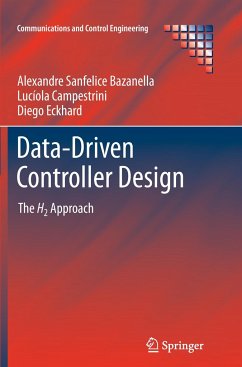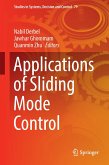Data-Based Controller Design presents a comprehensive analysis of data-based control design. It brings together the different data-based design methods that have been presented in the literature since the late 1990's. To the best knowledge of the author, these data-based design methods have never been collected in a single text, analyzed in depth or compared to each other, and this severely limits their widespread application. In this book these methods will be presented under a common theoretical framework, which fits also a large family of adaptive control methods: the MRAC (Model Reference Adaptive Control) methods. This common theoretical framework has been developed and presented very recently.
The book is primarily intended for PhD students and researchers - senior or junior - in control systems. It should serve as teaching material for data-based and adaptive control courses at the graduate level, as well as for reference material for PhD theses. It should also be useful for advanced engineers willing to apply data-based design. As a matter of fact, the concepts in this book are being used, under the author's supervision, for developing new software products in a automation company. The book will present simulation examples along the text. Practical applications of the concepts and methodologies will be presented in a specific chapter.
The book is primarily intended for PhD students and researchers - senior or junior - in control systems. It should serve as teaching material for data-based and adaptive control courses at the graduate level, as well as for reference material for PhD theses. It should also be useful for advanced engineers willing to apply data-based design. As a matter of fact, the concepts in this book are being used, under the author's supervision, for developing new software products in a automation company. The book will present simulation examples along the text. Practical applications of the concepts and methodologies will be presented in a specific chapter.








